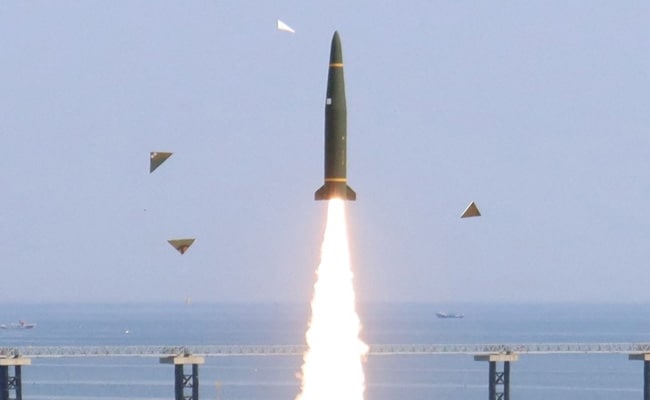In a recent development, North Korea has reportedly launched a ballistic missile towards the Sea of Japan, marking the second such incident within a span of less than 12 hours. According to Japan’s Defense Ministry, there are concerns that the missile launched by North Korea may be of long-range nature, and as of now, it is still airborne. Fortunately, there is currently no perceived threat to any land, as reported by NHK.
The situation is tense as North Korea’s actions raise alarms regarding the potential launch of a long-range missile. The Defense Ministry’s statement underlines the uncertainty surrounding the nature and trajectory of the missile. The international community is closely monitoring the situation, given the geopolitical implications and the potential threat to regional stability.
As the missile continues its trajectory, the duration of its flight becomes a significant factor in assessing its capabilities. After approximately 70 minutes in the air, the North Korean missile reportedly fell into the Sea of Japan. This development is particularly concerning, as it is believed to be an Intercontinental Ballistic Missile (ICBM), indicating North Korea’s advancement in its missile technology.
The incident underscores the ongoing challenges in managing North Korea’s nuclear and missile programs, raising questions about regional security and diplomatic efforts to address the issue. The international community is likely to condemn this provocative action and may consider further discussions on how to address North Korea’s missile activities.
Japan, being in close proximity to North Korea, remains vigilant, with its Defense Ministry actively monitoring the situation. The fall of the missile into the Sea of Japan without causing harm to any land offers a temporary relief, but the incident highlights the persistent need for diplomatic efforts to address the underlying issues and maintain stability in the region. As the situation unfolds, governments and international organizations will likely engage in discussions to assess the implications and determine an appropriate response to North Korea’s missile activities.
Earlier today, United States, in partnership with South Korea, has issued a stern warning to North Korea, emphasizing the absolute unacceptability of any nuclear attacks targeting the nation or its allies. In a joint statement, both nations underscored the severe consequences such actions would entail, explicitly stating that any nuclear aggression would result in the downfall of the Kim regime. This collaborative effort signifies a unified stance against potential threats and reinforces the commitment to deter and respond decisively to any actions that pose a threat to regional security and stability. The clear message aims to dissuade North Korea from engaging in nuclear provocations and serves as a demonstration of the coordinated resolve of the United States and South Korea in safeguarding their interests and those of their allies in the region.
Bringing you the latest updates on finance, economies, stocks, bonds, and more. Stay informed with timely insights.
























Be First to Comment